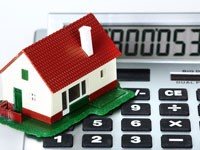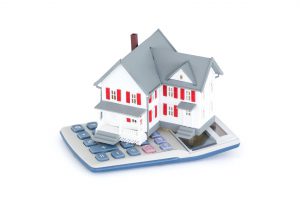How Are Property Taxes Calculated in Illinois?
 If you’ve noticed that your property tax bill increases at a rate that doesn’t correspond with changes in home prices on the market, you may wonder how your county assessor determines your annual property tax bill. This blog post explains the process of how your property tax assessment is calculated.
If you’ve noticed that your property tax bill increases at a rate that doesn’t correspond with changes in home prices on the market, you may wonder how your county assessor determines your annual property tax bill. This blog post explains the process of how your property tax assessment is calculated.
You may get more out of this post if you read it with a copy of your latest property tax bill handy.
It All Starts with Government Spending
The first step in determining how much you owe in property taxes is based on how much revenue your county needs to generate to fund the budgets of all of the taxing bodies. Most property tax revenues go towards funding local school districts, followed by the other taxing bodies such as the fire department, police department, libraries, water reclamation districts, forest preserves, park districts, mosquito abatement districts, etc.
Aggregate Rate & EAV
After the total amount of the property taxes to be levied in a given year is established, the taxing authorities determine the property tax rate that must be applied to the total value of real property in each taxing district in order to raise the required property tax revenue. In a simplistic example (ignoring adjusting factors such as levels of assessment, exemptions, state equalization, etc.), if a taxing district needs to generate $5 billion in property tax revenues to cover its budgeted spending and all of the real property located in the taxing district is valued at $100 billion in the county, then the tax rate would be 5% or $5B/$100B.
The market value of your home is estimated by the assessor using sales information of homes similar to yours in your area, and then used in determining your home’s assessed value. Your home’s assessed value is then equalized along with all other properties in accordance with applicable law. The tax rate is multiplied by the equalized assessed value (EAV) of your home net of any exemptions applied to your property.
Property Tax Exemptions
You may qualify for one or more of several property tax exemptions. Exemptions are available to certain taxpayers who may qualify on the basis of:
- Residing in the property
- Senior citizen status
- Veteran status
- Disability
Property Tax Fairness
Thus, whether the market value of your property goes up or down in any given year, may have no effect on your property tax bill because your county needs to fund its budget regardless of home prices and there are other non-market forces that determine your property tax bill.
Because your county is using macro/aggregate information, there are inherently discrepancies in fairness for what you may be asked to pay in property tax relative to other properties.
Ascertaining whether the assessed value of your property is fair or should be appealed can be time consuming and difficult, as there are many factors that determine what properties are actually comparable to yours.
Cook County homeowners: click here for more information on how to read your tax bill.
Contact Kensington to learn more or for a free property tax appeal estimate if you live in Cook County
 Eligible Cook County homeowners who did not receive the Homeowner Exemption in 2019 need to file an application for exemption with the Cook County Assessor’s Office by April 9, 2021.
Eligible Cook County homeowners who did not receive the Homeowner Exemption in 2019 need to file an application for exemption with the Cook County Assessor’s Office by April 9, 2021.


 Eligible Cook County homeowners who did not receive the Homeowner Exemption in 2018 need to file an application for exemption with the Cook County Assessor’s Office by March 6.
Eligible Cook County homeowners who did not receive the Homeowner Exemption in 2018 need to file an application for exemption with the Cook County Assessor’s Office by March 6. If you’ve noticed that your property tax bill increases at a rate that doesn’t correspond with changes in home prices on the market, you may wonder how your county assessor determines your annual property tax bill. This blog post explains the process of how your property tax assessment is calculated.
If you’ve noticed that your property tax bill increases at a rate that doesn’t correspond with changes in home prices on the market, you may wonder how your county assessor determines your annual property tax bill. This blog post explains the process of how your property tax assessment is calculated. Over 90% Success Rate on Property Tax Appeals & Protests
Over 90% Success Rate on Property Tax Appeals & Protests No Up-Front Fees
No Up-Front Fees